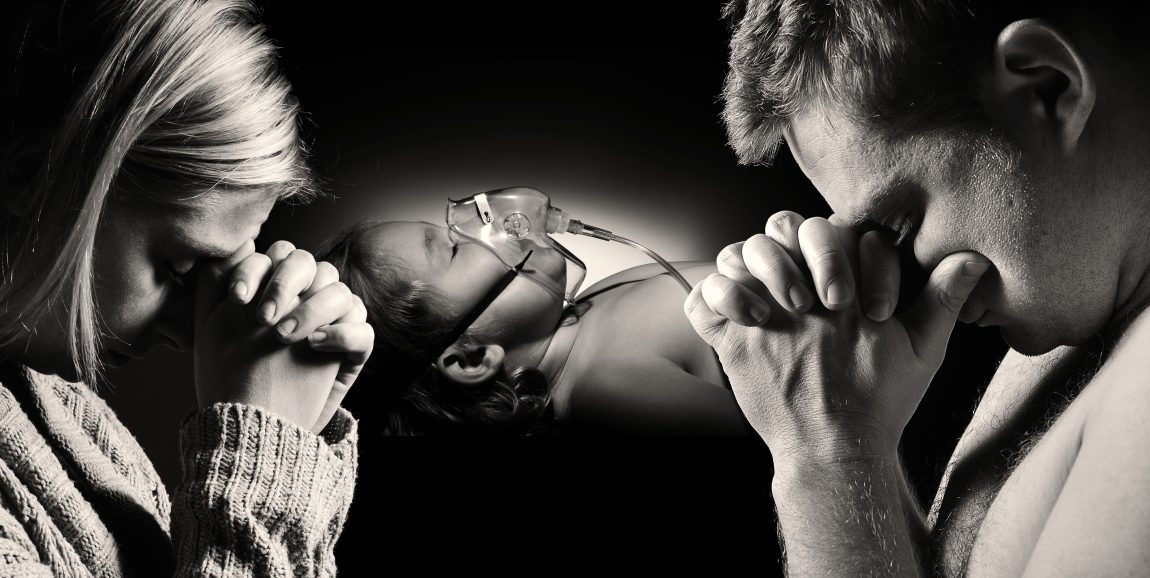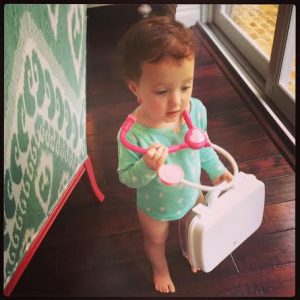
Please Help Me, My Child is Having a Seizure
There is nothing more terrifying than a parent witnessing their child having a seizure. The few minutes of a seizure feels like an eternity. Seizures account for 1 million emergency room visits per year, with the majority of them being patients under the age of five. There are several things that can cause a child to have a seizure but today we are going to talk about the most common cause, which is actually fever. Many parents don’t know that a spike in body temperature can cause seizures. Febrile seizures are the most common type of convulsion in infants and young children, occurring in 2 to 5% of American children before the age of 5. Fortunately, they are usually benign and don’t lead to long-term medical problems. However, they are extremely traumatizing for parents. It is important to understand what seizures are and what to do if your child has one, so let’s get started!
What is a febrile seizure? A febrile seizure is a convulsion that is caused by a spike in body temperature, often from an infection. Febrile seizures typically occur between the ages of 6 months and 5 years old and are more common in children with fevers above 101 degrees Fahrenheit. A child will lose consciousness and most often the legs and arms will begin to shake. Other symptoms can include eyes rolling back, rigid arms and legs, or shaking of just one side or portion of the body. Most febrile seizures last only a few minutes.
What long term affects will my child have from a febrile seizure? Fortunately, the majority of febrile seizures are short in duration and do not cause any long term damage. Large studies have been done that have show that children, even with prolonged seizures (over 15 minutes) have normal school achievement and perform just as well on scholar exams as their siblings that didn’t experience seizures. Some children who have febrile seizures may experience injury while the event is occurring and can also choke on food or saliva that is in the mouth. About 40% of children that have a febrile seizure will have another one. Children that have a brief full body seizures (less than 10 minutes) only have a slight increased risk of having epilepsy.
What should I do if my child does have a febrile seizure?
- Remain calm and call an ambulance.
- Do not try to restrain your child. Rather, put them on a protected surface with nothing around that they can injure themselves on.
- Place the child on their side to prevent choking. Never place any objects in their mouth (i.e. bite guard) while the seizure is occurring. It can obstruct their airway, making it difficult to breath.
- Try to time the event. It is helpful to the doctor and nurse in the diagnosis of the type of seizure to know how long the event lasted.
- Seek immediate medical help. Most febrile seizures are caused by infection such as the flu or an ear infection, which can cause fever. However, it is imperative that your child is examined by a doctor to determine the source of fever and if further testing is necessary.
Will my child have to go in anti-seizure medication? No, most children that have a brief, full body seizure caused by a fever do not require medication.
If my child does have a febrile seizure, is there a way to prevent another one from occurring? Although available studies show that fever controlling medicines do not necessarily reduce the risk of having another seizure, the house should always be stocked with both Motrin and Tylenol. The correct dosing for your child’s weight should be calculated by a doctor and displayed in a place everyone can see. During an illness that causes fever, your child’s temperature should be taken every 3 hours and treated appropriately.
If your child does suffer from a febrile seizure, remember to stay calm, seek immediate medical attention, and know that everything is going to be okay! I hope this helps you with your journey. See you next Wednesday.





I had an ear infection that went untreated when I was young leading to hearing loss. I am also epileptic. This post makes me wonder if there’s a link between the two.